Al Roker Never Could Have Forecasted Where He'd Be Today

Al Roker is a bit "pooped" at the moment.
He has just returned home from a summer road trip he took with his son, Nick, and goddaughter, Haley, to eastern Tennessee. Though Al divided up the 14-hour drive from his "neck of the woods" in the Hudson River Valley of New York to the Volunteer State, he's never been behind the wheel for that long. Nevertheless, he had a blast at every stop, snapping selfies in his mask and taking in the scenery. The experience reminded him of his one and only family road trip as a child to the Expo 67 in Montreal with his late father, Albert Roker, Sr.
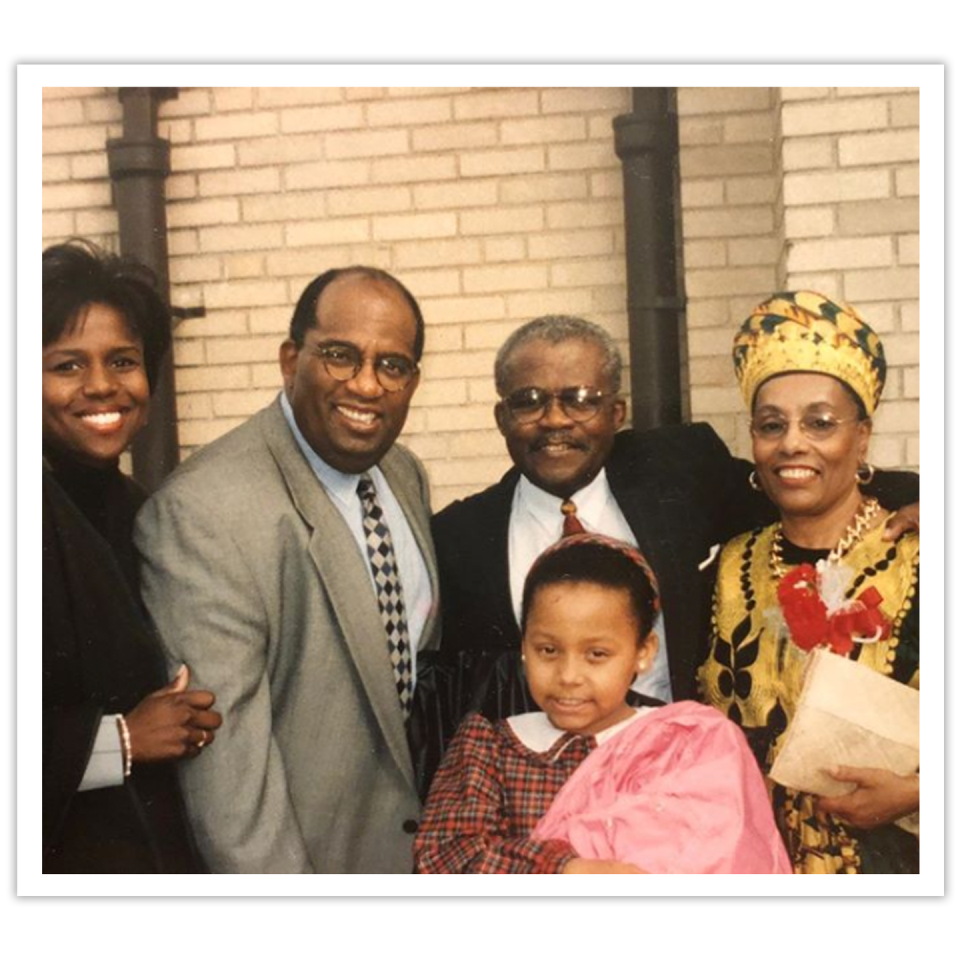
"My dad had just purchased a new Country Squire station wagon," Al recalls to Good Housekeeping. "He just decided, 'let's do it, let's take a road trip.' So we went!"
Pick up his thirteenth and newest book, You Look So Much Better in Person, and you'll discover how much Al's father has influenced the weather anchor's outlook on work and life beyond Studio 1-A. When the long hours of the Today show star's schedule got to him early on his career, Al thought about his dad picking up shifts as a bus driver to earn more money for their family. It motivated him to keep pushing, even when his exhaustion seemed endless.
But apart from his dad's steadfast work ethic, Al greatly admired his dad's ability to choose positivity — a recurring theme in Al's new autobiography. As Al writes, his dad knew that "how you react not only reveals something about who you really are, but also has the power to change the situation."
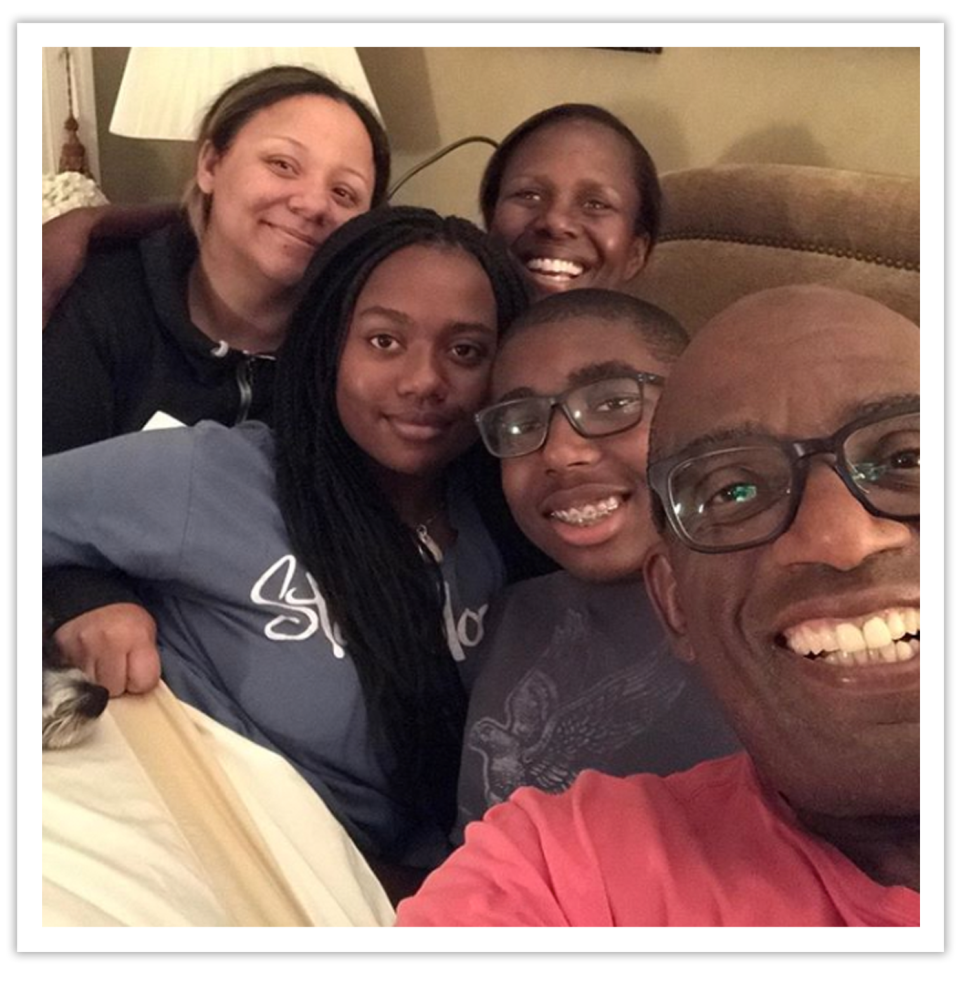
Of course, Al admits that he isn't perfect at this — on occasion, he'll sling a clever clapback at a Twitter troll. But most of the time, he swears brushing things off and moving on is often the best option. Pre-coronavirus pandemic, he put this rule into practice quite a lot. Al would constantly shake hands with Today fans around Rockefeller Plaza and be told, "You look so much better in person!" (hence, the name of his book). Sure, it still takes him aback when he hears this frequent non-compliment. Over time though, he has found the power in controlling your reaction.
"They're not coming at you to insult you. I think they're genuinely surprised. But, you know, at times, [I'm thinking], 'Do I look bad on television?' Because after all, that is where I work," Al explains. "But I think people need to look at where they are, who they are, and decide what is going to upset them and make them angry. If that's the worst thing someone tells you in your life, you're okay."

Unfortunately for the Today third-hour co-host, "you look so much better in person" is far from the worst comment he's encountered. Knowing this, Al recognizes an exception to the rule — sometimes being direct and taking action are appropriate when there are, as he puts it, "bigger fish to fry."
In the book, Al, who forecasted the weather at the NBC affiliate WKYC-TV in Cleveland before coming on Today, recalls his first time experiencing blatant racism at work. The late broadcast journalist Doug Adair alleged that an older Black man experiencing homelessness swatted him in the back of the head with a newspaper outside of the studio. During a live broadcast, Doug told Al, "I don’t know if you heard, but last night after the eleven o’clock news, one of your people attacked me." Choosing his response carefully, Al matter-of-factly replied, "Doug, why would a weatherman attack you?"
This happened over 40 years ago. Al can't help but think about the social media reaction if it had occurred today.
"He would have been destroyed. And, you know, I'm not gonna say 'yay' or 'nay' whether he deserved to. He was an affable guy and what he said was not typical of what he would normally say," Al says. "But, you know, it was a racist comment ... He ended up leaving the station and picked up somewhere else. I don't know if he'd be able to do that [today]."
While in his late teens, Al's dad engrained in him that, as a Black kid, he would have to work twice as hard and be twice as good as his white counterparts. Al found this to be an unfortunate reality. When getting hired for his first job in Syracuse, he wrote that the station recruited security and extra people to answer phones because they anticipated backlash for having a Black man doing the weather forecast (Al noted that it "turned out, none of it was necessary").
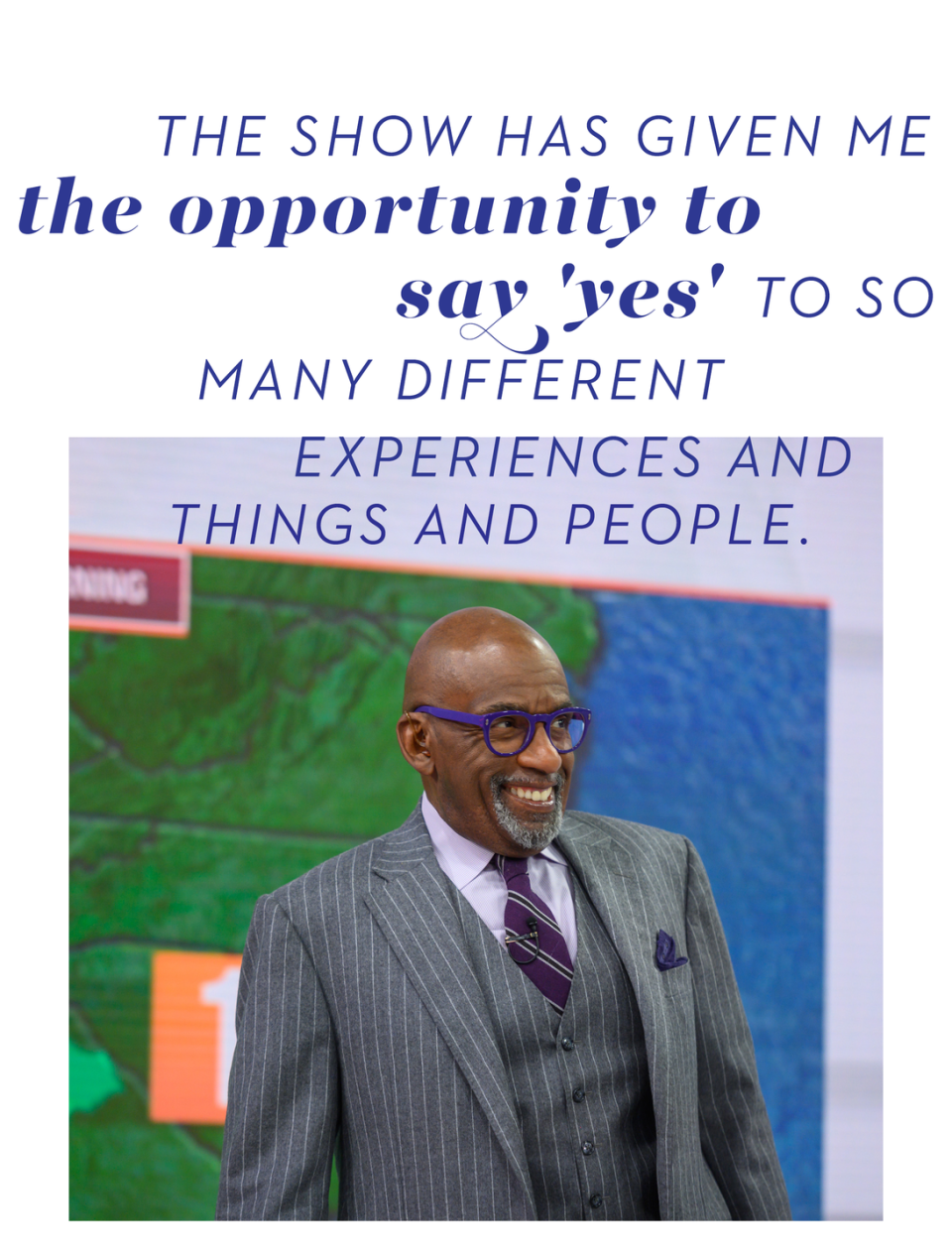
A new path forward, according to Al, has to start in education and corporate America — even within the very own walls of his current employer of 42 years, NBC. Al takes particular pride in a pledge from Cesar Conde, chairman of the NBCUniversal News Group, who recently vowed to make changes over time that would result in 50% of their employees being people of color and 50% of their employees being women.
"That's the only way things will change, when corporate America makes those commitments and follows through. I am hopeful."

Despite these challenges, Al has plenty of positive experiences to point to during his ongoing tenure at NBC. After finding success at his weather anchor jobs in Syracuse, Washington D.C., and Cleveland, the Queens native moved back to New York City in 1984 to accept a position with WNBC. It was part-time work and paid less, which made things tough for Al. But his boss in Cleveland warned Al, "you'll make the worst mistake of your life" if he chose not to move to the Big Apple.
Heeding that advice, Al took a big risk and packed his bags.
"My parents were here. My brother and sister were in New York. The idea that my parents could turn on the TV and see their son ... I think at the end of the day, a lot of what we do is to please our parents," Al concludes. "To show them, hey, what you did, all the sacrifice you made, it paid off. And this is how."
Needless to say, Al has proven their sacrifices were well worth it, time and time again. When his mentor Willard Scott retired, Al became the full-time weather anchor at the Today show in 1996, an opportunity that has allowed his career to truly flourish in new and unexpected ways.
"The show has given me the opportunity to say 'yes' to so many different experiences and things and people. Places that I just in my wildest dreams never thought I would get to go to."

A handful of these unique opportunities include setting three Guinness world records (Al delivered the world's longest uninterrupted live TV weather report in 34 hours), hosting the Rockefeller Center Christmas tree lighting ceremony, cutting the ribbon at the Macy's Thanksgiving Parade, acting in the Broadway musical Waitress, and interviewing some of his favorite celebrities, including Don Rickles, Betty White, Carl Reiner, and Dick Van Dyke.
But Al will let you know it's not all sunshine and rainbows — the poise and excitement you see in front of cameras is because of the not-so-glamorous work happening behind the scenes. As Al hilariously notes in the book, "for every smiling broadcaster there are at least six people cursing in the background."
The pressure is on, and there are lots of moving parts that lead to a successful broadcast each morning. Constant notes and adjustments feed into the co-hosts' ear pieces at commercial breaks. In-studio thermostat wars commence between the female and male co-hosts (Al swears he, Craig Melvin, and Carson Daly "sweat like pigs" in their suits). There's controlled chaos and frequent cursing in the control room. But it all comes together the minute the cameras start rolling.
"What I don't think people realize is that we produce four hours of television, every day. We produce more TV than NBC entertainment produces every night ... and it's live," Al reasons. "Every show is basically a ballet, a wrestling match, a circus, and a newscast all rolled into one."
For Al, his day begins around 3:45 a.m. during the week. Pre-COVID, Al would stay at his brownstone home in the Upper East Side of Manhattan during the week, returning to his place upstate on the weekends. He'd wake up, get dressed, gulp down a protein shake for breakfast, hop in the car (or bike in if the weather was nice!), and head to the studio. Now, however, his commute time is non-existent, which means one extra hour of sleep.
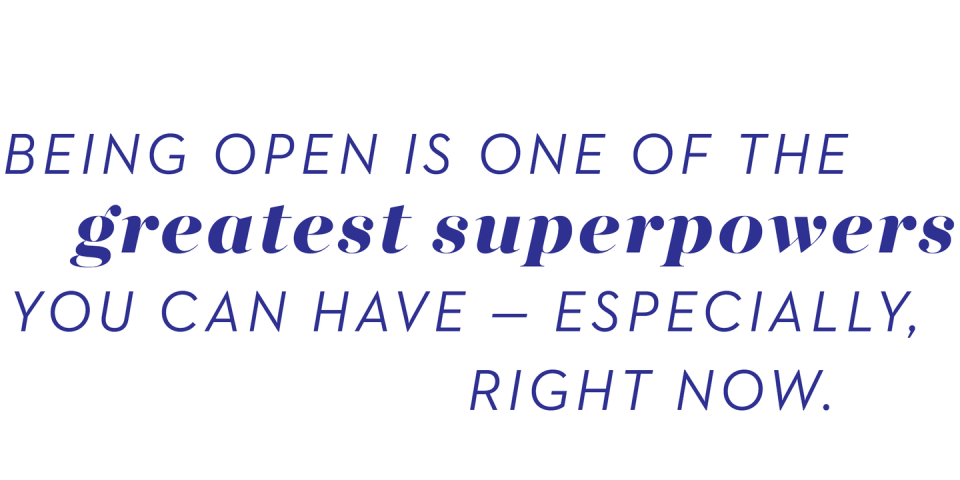
"There is something nice about rolling out of bed a little later," Al admits. "That said, you know, we do a lot of Zoom tapings and things during the day because we have to. So the day can stretch out long, but I'm not complaining at all."
After co-hosting the Today third-hour program, Al's busy day has only just begun. He may have to go out on a shoot for another segment or stick around to discuss the severe weather happening somewhere in the country. He may head home right away to do a bit of writing for a book or stop by to check in on his production company in the city. When he finally does get home, Al will sometimes take a spin class on his Peloton bike and then start dinner. Around 9:30 or 10 p.m., he crawls into bed.
"I don't like to go to bed much earlier than my teenagers," Al declares. "My dad always told me that. 'Never go to bed before your kids.'"
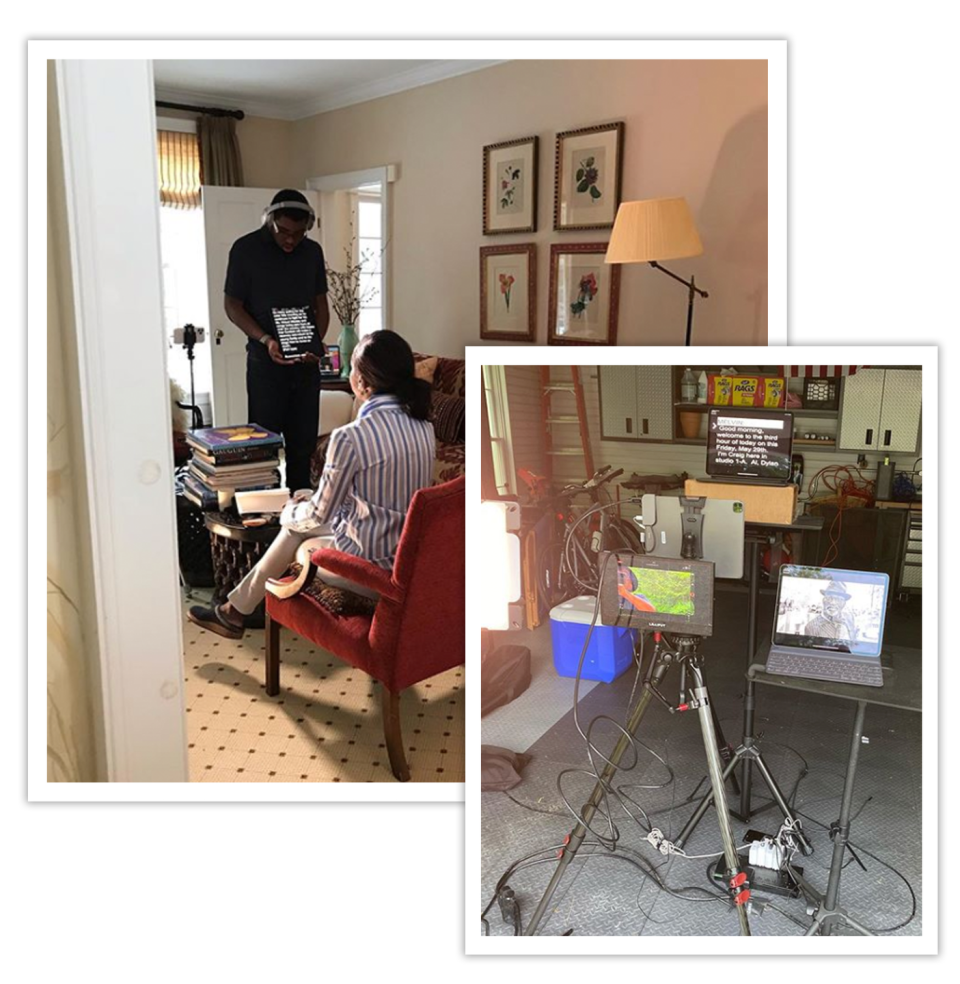
Reporting the weather from his garage has been quite an adjustment. Al definitely has his days where he's anxious to get back into the studio with his Today show family — he misses members of what he calls his "A-Team." On the same hand though, it's "a nice bonus" to get to spend more time with Nick and his wife, Deborah Roberts. Of course, being the acclaimed journalist that she is, Deborah, too, has had to work out of a different room in their house when calling into report for ABC News, Good Morning America, Nightline, and 20/20. It's created quite a labyrinth of wires, monitors, and lights.
"We're not ships passing in the night, we're ships passing in the kitchen," Al quips.

Needless to say, no one knows when the coronavirus pandemic will be over. Likewise, Al can't forecast when he'll resume more in-person interviews and regularly appear in Studio 1-A again with his colleagues. Does this reality stress him out, though? It's a daunting thought, sure, but following his father's example and taking a page out of his own book (literally), he's focusing on the positive. He doesn't know what the future holds for him at this point or what might happen next in his career. But like Willard once taught him, "you have to ride the train to the last stop."
"I think the important thing is to be open to everything," Al says. "I'm not a big planner. Look at what has happened this year. Everybody's plans have been thrown out the window, and people have had to reconfigure."
The last few months have only confirmed one of the cardinal rules Al believes has led to much of his success: Forget the five-year plans, let the road take you where it may, and enjoy all the stops along the way.
"Being flexible is one of the greatest superpowers you can have — especially, right now."
You Might Also Like

